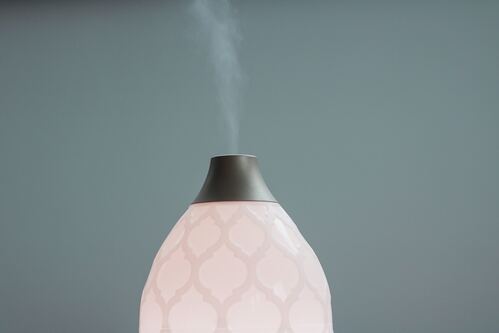In the journey towards wellness, plants have always been our silent yet powerful allies. With the world turning more towards natural health aids, it’s high time we dive deeper into this green treasure trove. The power of plants in healing and wellness is an ancient wisdom now being revisited and validated in our modern world. As we seek more holistic approaches to health, understanding the role of plants becomes crucial. This exploration is not just about finding alternatives; it’s about reconnecting with nature’s age-old pharmacy. Let’s embark on this enlightening journey together, and as we do, let’s not forget the simplicity and purity that plant-based solutions bring to our lives, offering a contrast to the often complex world of modern medicine.
The Healing Power of Plants
Plants have been the backbone of traditional medicine across various cultures for centuries. But, are they just old wives’ tales? Far from it. Modern science increasingly supports the efficacy of plant-based treatments. Take, for instance, the humble turmeric, known for its anti-inflammatory properties, or the calming effects of chamomile. These are not just folklore; they’re backed by scientific research. Beyond these examples, countless other plants like ginger and garlic play a pivotal role in natural healing. What makes plants so effective? It’s their complex array of bioactive compounds, each playing a unique role in health and healing. Their natural compounds can often offer fewer side effects compared to synthetic drugs, making them a gentler option for long-term use.
Herbal Remedies: Ancient Wisdom for Modern Ailments
Herbal remedies offer a gentle yet effective approach to managing a range of health issues. From soothing teas made from lavender to echinacea extracts for boosting immunity, the variety is endless. Integrating these into our daily routine can be as simple as swapping your morning coffee for a cup of herbal tea. However, remember, natural doesn’t always mean risk-free. It’s vital to understand the proper use and dosage of these herbs. The beauty of herbal remedies lies in their versatility – they can be consumed as teas, tinctures, capsules, or even used topically. With growing interest in sustainable and organic living, herbal remedies are increasingly sought after for their minimal environmental impact. They represent a step towards a more conscious and health-focused lifestyle. In the modern age, where synthetic drugs dominate, turning to these natural remedies offers a reminder of the enduring power of nature in healing.
The Role of Essential Oils in Health and Wellness
Essential oils are nature’s concentrated essences. Lavender oil can aid in sleep, while peppermint oil is known for its ability to relieve headaches. But how do you use them? It’s simple – add a few drops to a diffuser, or mix with a carrier oil for topical application. Yet, caution is key – always do a patch test first. Beyond these, oils like tea tree have antimicrobial properties, and rosemary oil can boost focus and memory. It’s fascinating how each oil has its unique properties and applications. When choosing essential oils, it’s important to look for purity and quality. The growing market of essential oils has led to a variety of options, making it crucial to choose wisely. These potent essences, derived directly from plants, encapsulate the essence of nature’s healing power in every drop.
Medical Marijuana: A Controversial Plant with Promising Benefits
Medical marijuana, often a subject of debate, holds significant potential in treating various health conditions. Its two main components, CBD and THC, work in different ways to alleviate symptoms. While THC is psychoactive, CBD isn’t, making it an appealing option for those seeking relief without a ‘high’. Recent studies have shown its effectiveness in conditions like chronic pain and epilepsy. Beyond these, medical marijuana has shown promise in treating anxiety, some symptoms of cancer, and even neurological disorders. It’s a field of medicine that continues to evolve, with ongoing research uncovering new therapeutic potentials. It’s important for patients and healthcare providers to stay informed about the latest developments in medical marijuana research and applications. As this field grows, it reshapes our understanding of natural remedies in modern healthcare, offering new horizons in pain management and symptom relief.
In Mississippi, for example, medical marijuana is legal but only under specific conditions. To obtain an MS medical marijuana card, patients must navigate through a defined process. This involves having a qualifying medical condition and getting approval from a licensed healthcare provider. This card opens up access to medical marijuana, which can be a game-changer for many patients. The list of qualifying conditions in Mississippi is extensive, ensuring that those in genuine need have access. The process, while meticulous, is designed to ensure safe and regulated access to medical marijuana. For many residents, the availability of medical marijuana represents a significant step towards improved quality of life and pain management. This progression in state law marks a significant shift toward recognizing and legitimizing the therapeutic benefits of cannabis, a plant with a complex history but a promising future in medicine.
Incorporating Plant-Based Health Aids into Your Life
Incorporating plant-based health aids into your life should be a careful and informed decision. It’s crucial to consult healthcare professionals and consider your personal health needs. Testimonials abound of individuals who have found relief and improved quality of life through these natural remedies. Yet, what works for one may not work for another. When starting with any plant-based remedy, it’s advisable to start with small doses and monitor your body’s response. Personalization is key in natural health – what heals one person might not have the same effect on another. It’s a journey of discovery and understanding your own body. Embracing plant-based health aids is not just about treating ailments; it’s about adopting a lifestyle that values natural balance and wellness. This shift towards natural health aids signifies a growing awareness of the importance of sustainable, holistic healthcare solutions that align with our bodies and the environment.
Conclusion
Plants, often underestimated, are potent protectors in our health arsenal. As we continue to explore and respect their potential, the world of natural health aids becomes more intriguing and promising. Remember, the key is to use these gifts of nature wisely and in harmony with professional medical advice. Interested in exploring further? Check out these resources for more information:
As we close this chapter, let’s open our minds to the endless possibilities that plants offer. After all, nature’s remedies have been there all along, waiting for us to rediscover and embrace them in our journey towards health and wellness. The path to natural health is not just a trend; it’s a return to the roots of holistic well-being, a path that leads us closer to nature and its boundless capacity to heal.




